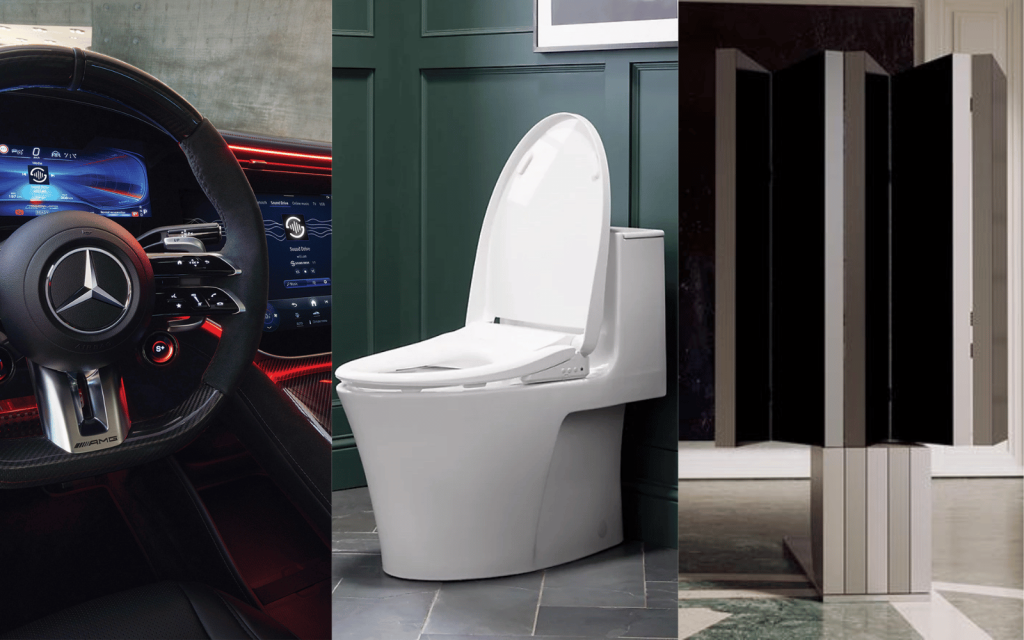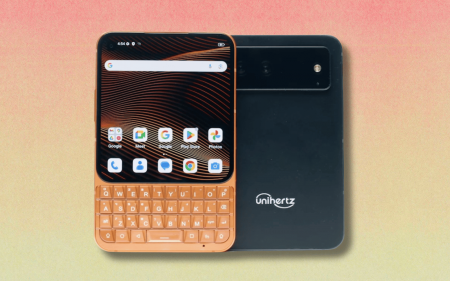Every year at CES there’s a slew of some of the weirdest tech you’ll ever see. LG is usually involved (this year is no different) but you get far wackier results from the lesser-known folks on the show floor. They’ve got more to prove or less to lose. Whatever the case, it always makes for some excellent head-scratching.
We’ve trawled around the tech on offer at the Consumer Electronics Show to find the weirdest of the bunch this year. It’s not enough to just be weird, however. It’s also got to stand a chance of actually making it to retail. All of the products listed below have that chance. Heck, some of them are already available. Others are just pipe dreams, using oddity to generate notoriety and perhaps a little of that investment cash that American startups are so fond of.
Mercedes and Will-i-am make Audiosurf a real thing with Sound Drive
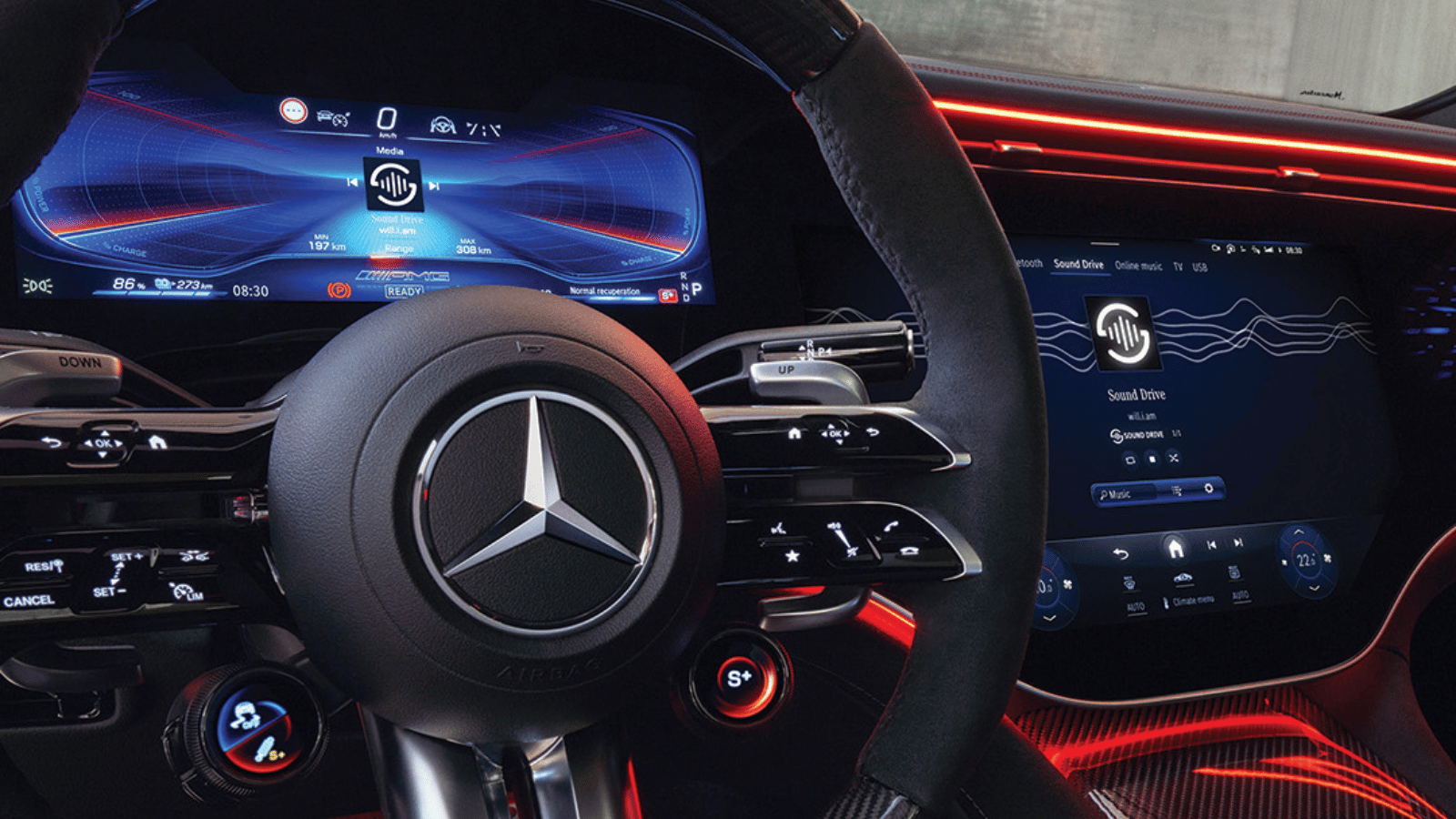
Many folks don’t like to drive unless there’s music playing. But what if you could create music by driving? That’s the idea behind MBUX Sound Drive, a feature for the luxury German vehicles that turns your driving into sweet, sweet tunes. Everything that the vehicle does — braking, acceleration, steering, all of it — is converted into inputs used to guide the backing music in your vehicle. It sounds similar to the music system used by Doom and Doom Eternal but it’s probably more in keeping with the German automaker’s aesthetic. It would be rather weird if driving badly blared out Rip and Tear from those exquisite speakers. At least, we hope not. Artist-turned-tech-head Will-i-am is involved in this one so expect to see it (and clones of it) in vehicles sooner rather than later.
Kohler’s new smart toilet will listen to you do your thing — just in case

It’s not an edition of CES without a smart toilet of some sort. The Kohler Purewash E930 is a remote-controlled bidet but that’s not the technological bit. The R24,000 toilet seat (which is on sale now) connects to both Google Assistant and Amazon Alexa ecosystems. Which means it has a microphone. That’s always listening. Someone might have pointed out to Kohler and its ilk that another name for ‘bathroom’ is ‘thunderbox’. Still, it’ll accept voice commands, activating the bidet sprayer, air dryer, and UV cleaner on command. Provided you can get used to issuing commands without worrying that someone’s at the door eavesdropping on your repeated attempts to get the damned thing to understand you, it’ll probably be a fine addition to your smart home. A voice-activated toilet. What could possibly go wrong?
Missing the days of masks? Skyted has you covered (for privacy reasons)
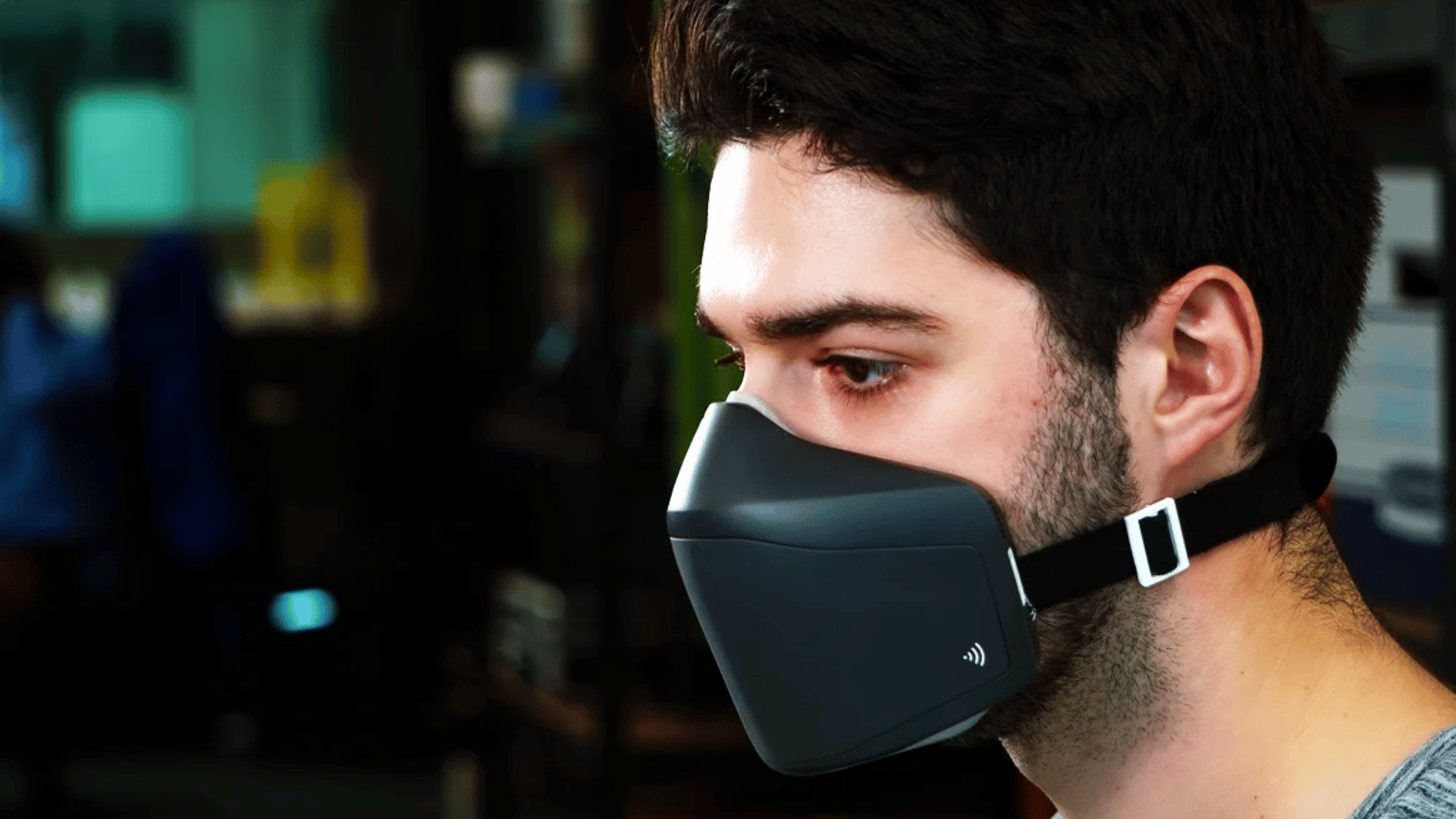
Some people just can’t let masks go. There’s little enough reason to wear them (we’re not going down that rabbit hole now) but maybe you’re feeling nostalgia for a time when nobody could see your lips. Skyted reckons they have what you need — a face mask that acts as its own little cone of silence. This’ll allow you to conduct a conversation in a crowd, ensuring that the folks on the other end of your phone (yup, it’ll connect to it) can hear what you’re up to but nobody else can. Unless you turn on transparency mode, in which case you’ll be audible outside the totally-not-a-menpō. There’s even an audio booster, in case you’re feeling a little like Bane today. Will this weird little product launch? Maybe. Will it sell? That’s… an entirely different question.
Fitness trackers for dogs? Sure, that sounds like a sensible market niche

People who own pets are already a little weird. What’s wrong with selling them a product that’ll allow them to keep closer tabs on their furbabies? Nothing, according to capitalism. A vet company, Invoxia, has come up with the Minitailz smart collar, a R1,900 (yeah, it’s on sale) fitness tracker that’ll track, capture, and transmit your dog or cat’s vitals to a mobile device. It would probably work on a human being, too, if you can get it to fit, but that’s about where we stop asking questions. It’ll track breathing, activity, and location (thank you, GPS), all using the magic of… you guessed it, AI. The only real requirement for usage seems to be that Rover or Fluffy has to wear a collar since that’s where the tracker lives.
“How many times should our TV fold?”
“Yes.”
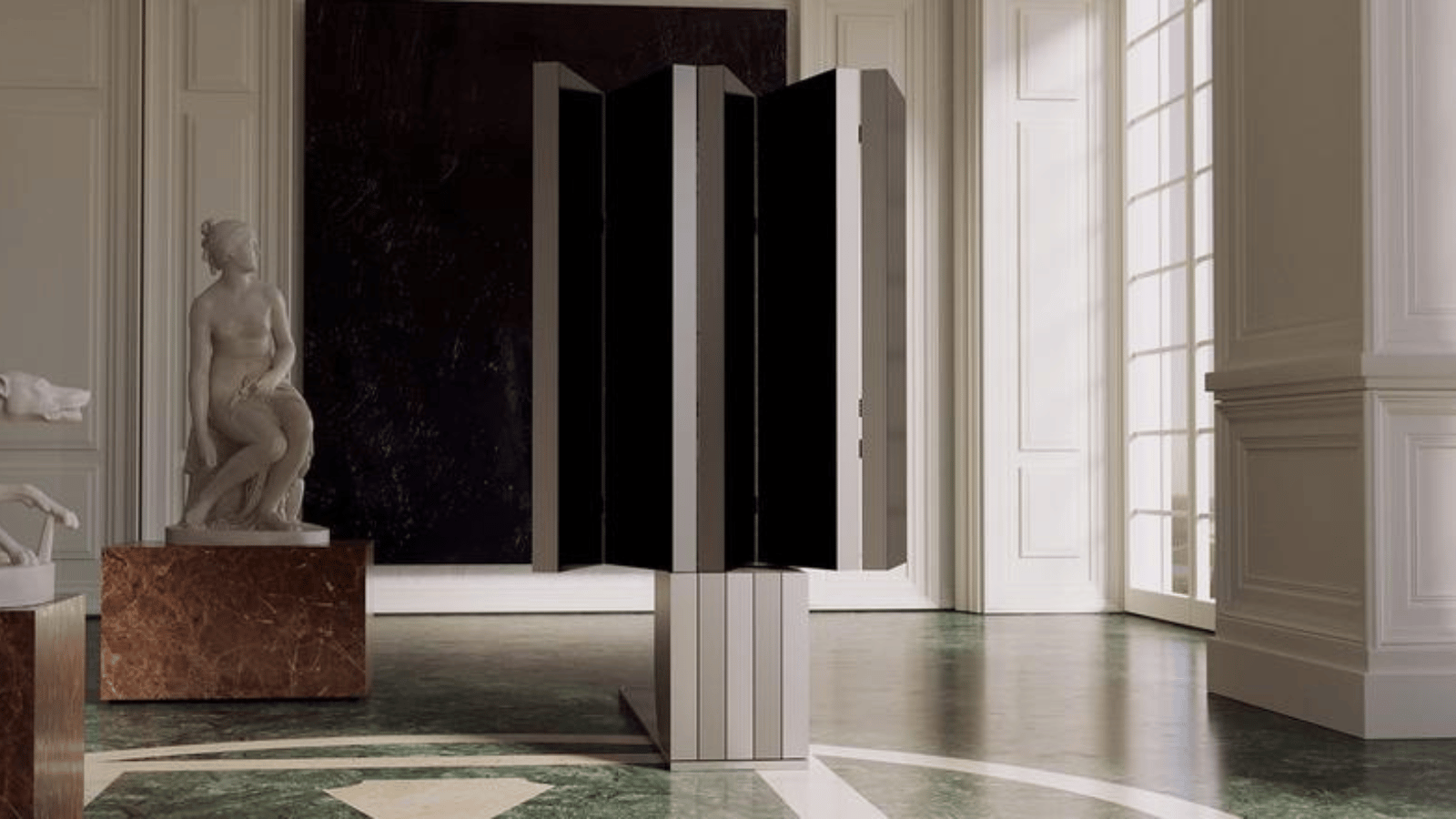
The C Seed N1 folding TV set does… exactly what it says on the tin. It’s a very large TV set (it’s a 137-inch monster, with 103in and 165in option also available) so the weird ability to fold down into a unobtrusive shape is maybe a requirement but we kinda think that C Seed is just showing off. The microLED screen is made up of four panels that fit seamlessly together, it takes about a minute and a half to stand up and unfold, and is fitted with dual 100W speakers, so the sound should match the sheer ridiculousness of it all. That extends to the price — it’ll cost you just shy of R4 million, or $200,000 for the 137in version of this set. Weirdly, we don’t reckon you’re allowed to throw a game controller through it. There’s probably a forcefield or something.
Lenovo’s Magic Bay concept laptop peripherals are… interesting

Lenovo is trying something that no other tech company has considered before (except for all these guys). Magic Bay is a new magnetic port coming to some of the Chinese company’s notebooks that will allow users to connect new peripherals and expand their notebook’s functions. Okay, ‘peripheral’. At CES, Lenovo demoed several concepts — a directional microphone, a small screen (for emoji and nothing else), a fan, and even an aromatherapy diffuser. But there’s only one option that’ll actually make it to market (so far) — it’s called the Magic Bay Studio and it’s a more premium webcam for folks who really want to look good in Zoom meetings. Or for streamers, we suppose. So modular tech is a thing again. Because it worked out so well on the previous occasions.
“We have Zordon at home.”
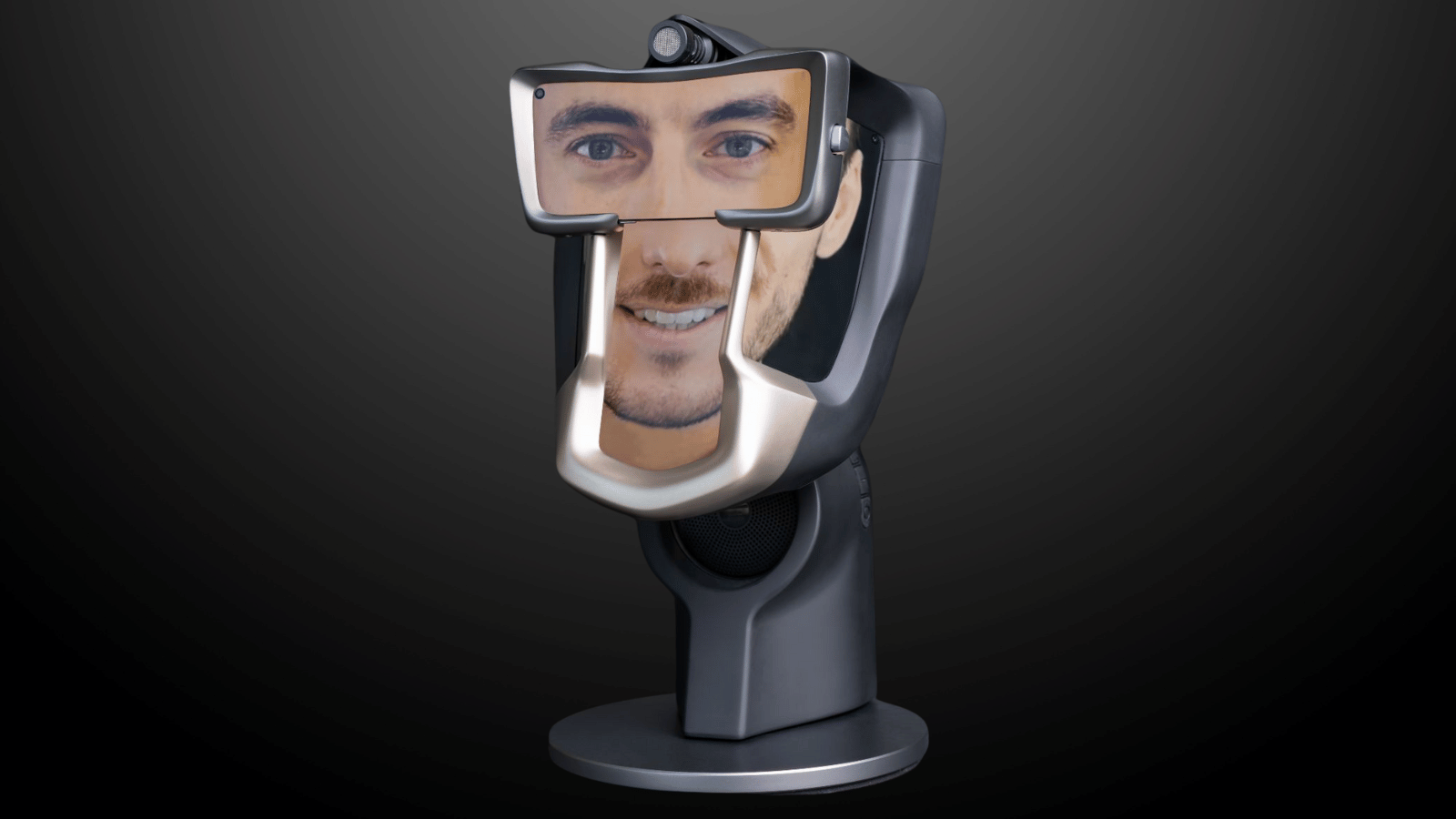
How do you make ChatGPT even creepier? Put it inside something it has no business being in. If that thing is the world’s worst-designed telepresence robot, you even get bonus points. But hey, folks like us will write about your company and that’s what’s important, right? Meet WeHead, a company that sounds like it could be operated out of a bus stop bathroom. They’re offering these robots with the oddly-distributed faces to anyone who will pay R94,000 for one (or just R4,000 to rent). The point is to interact with artificial intelligence in a way that feels more natural. If that really were the case, they probably would have done better to opt for a flat screen instead of this weird technological replica of the Witch-king of Angmar‘s battle helmet.

